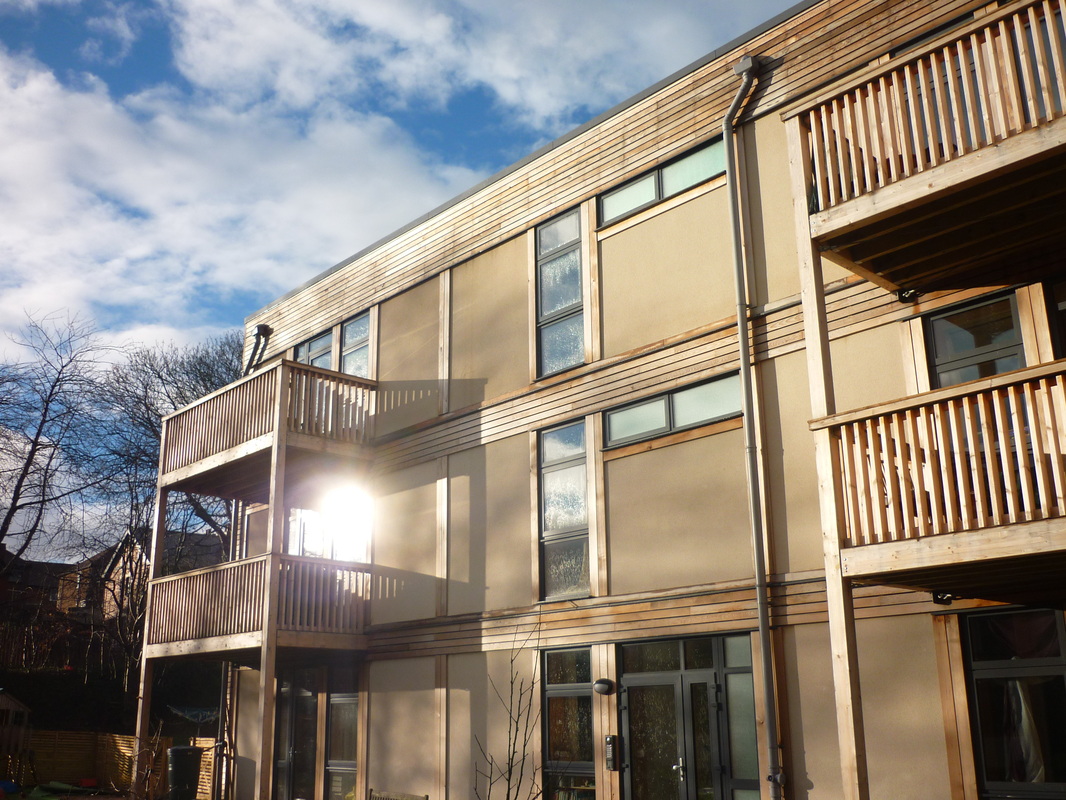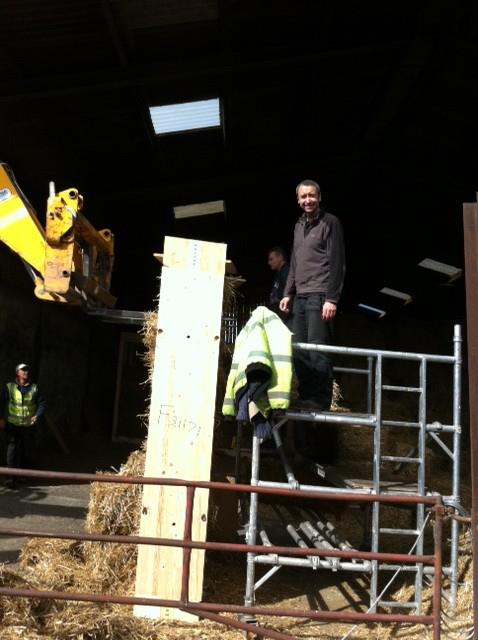LILAC: Low Impact Living Affordable Community
LILAC is the intentional community that I helped to establish and where I live. It is a member-led housing co-operative using an innovative financing model called a Mutual Home Ownership Society. It makes ownership of high-quality, ecologically responsible housing accessable to those on relatively modest incomes. As a cohousing scheme, it promotes community and there are numerous shared facilities such as the Common House, laundry, workshop and extensive communal gardens. Regular social events, communal meals and other activities all help to build social glue in this diverse, multigenerational community.
The homes are made from timber, strawbale and lime. They have very high insulation and air-tightness levels, and are ventilated mechnically with heat recovery. There is edible landscaping throughtout the site and a small allotment plot for each home. There is 0.5 car parking space per household to encourage car-sharing and the use of sustainable transport; cars are kept at the periphery of the site; the pedestrianised courtyards promote casual social interaction between members.
The project was already well underway when I joined in December 2010. Since then I have served on the board of directors and in the "professional liaison" task team, meeting with the architect, project manager, quantity surveyor, contractors etc for 2 years during the tendering and construction phase of the project. This enabled me to put the learning from my MSc to practical use as many detailed design decisions had to be made along the way.
I now act as a member of the landscape task team, which manages the shared gardens on site, and the learning & research task team that promote educational & research aspects of the project. This involves hosting groups that are looking to build their own co-housing schemes, liaison with professionals and academics etc.
While LILAC was not conceived explicitly as a permaculture project, it is consistent with the permaculture ethics:
The project was already well underway when I joined in December 2010. Since then I have served on the board of directors and in the "professional liaison" task team, meeting with the architect, project manager, quantity surveyor, contractors etc for 2 years during the tendering and construction phase of the project. This enabled me to put the learning from my MSc to practical use as many detailed design decisions had to be made along the way.
I now act as a member of the landscape task team, which manages the shared gardens on site, and the learning & research task team that promote educational & research aspects of the project. This involves hosting groups that are looking to build their own co-housing schemes, liaison with professionals and academics etc.
While LILAC was not conceived explicitly as a permaculture project, it is consistent with the permaculture ethics:
- Earth care: extensive use of renewable materials; super insulation; renewable energy; on-site food production and edible landscaping; pooling of resources like cars, washing machines, tools etc.
- People care: Cohousing model promotes community, reducing likelihood of isolation, loneliness and associated mental health issues. Also, as LILAC is a community-led development, members have a greater degree of self-determination
- Set limits to consumption & redistribute surplus: The building fabric & renewable energy technologies limit the consumption of fossil energy for space & water heating and power. Limited car parking limits the use of private cars. Surplus is redistributed through the innovative financing model; high earners can take an equity stake up to 110% of the value of their home. This makes other homes in the scheme more affordable for others. In some circumstances, high earners also pay a proportion of their income into a communal equity fund that supports the whole project.
For me, living at Lilac is an ongoing learning experience. It regularly presents interesting situations that call for introspection and reflection. In particular, my interpersonal and communication skills are often challenged and - I hope - are developing as a result.
In May 2014 I was interviewed about LILAC by House Planning Help for a podcast.
In May 2014 I was interviewed about LILAC by House Planning Help for a podcast.


